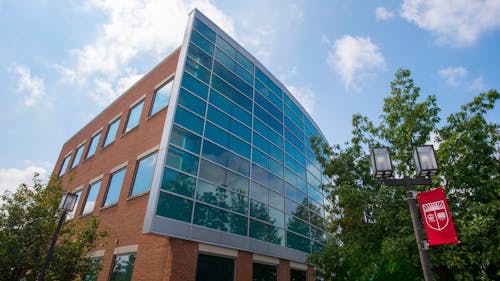School of Public Health holds event to provide approaches to dismantling institutional racism

The Rutgers School of Public Health held a virtual event last Tuesday that focused on “dismantling racism in academic public health," in order to acknowledge how racism is a public health crisis that requires a comprehensive and collaborative approach.
The webinar was led by Laura Magaña, president and CEO of the Association of Schools and Programs of Public Health (ASPPH), which is a nonprofit organization that works toward strengthening voices in the academic public health field.
Magaña said her goals for the conference were to break down prevalent areas of systemic racism and provide the ASPPH’s guidance and initiatives on how to approach the issue.
She said that a significant area where systemic racial inequality remains prevalent is within higher education institutions.
“Higher education institutions are failing to fully buy into an equitable and just society for all,” Magaña said. “Black and Latino students are more likely to receive education from institutions that are less well-funded, that have higher dropout rates, that operate for profit, that ... pay lower faculty salaries, and they have higher student to faculty ratios.”
Additionally, she said the graduates of these institutions often face disparities in the job market, referring to a 2019 study from Georgetown University that found that white employees were consistently paid more than their Black and Latino coworkers, regardless of their level of education.
Magaña also said that institutes in the U.S. have historically ensured the generational success of white individuals and that these patterns will continue if these institutes do not become mindfully anti-racist, a value that is advocated for in the field of public health.
“Being passive is not an option,” she said. “The public health community envisions that all our institutions are anti-racist institutions that participate fully in restoring the dignity, sanctity and empowerment of communities of color through policies and practices that produce and sustain racial equity.”
She said that academic public health programs can become models of academic justice by educating academic leaders about racism, establishing senior positions focused on both diversity, equity and inclusion (DEI) and anti-racism.
Other avenues include providing individualized support for growth and tenure, addressing gaps in faculty pay equity, diversifying hiring practices and improving academic and professional climates.
Magaña said that the ASPPH ideated a framework for standards of institutions that will embody the values of DEI to be followed. The framework outlines actions in three domains, including education and pedagogy, practice and research, which she said will impact the field of public health’s work for years to come in raising awareness in this area.
She said that leaders should use education, pedagogy and training to promote anti-racism through curricular competencies, climate assessment, mentorship, scholarship and professional development opportunities for students.
Promoting anti-racist initiatives through curriculum and courses includes highlighting how racial discrimination affects public health, as well as expanding opportunities to include anti-racist perspectives in hiring and creating more postdoctoral fellowships for students of color, Magaña said.
She also said it is important to collaborate with local communities and find different solutions to racism and its impacts in order to practice the inclusion of DEI values in institutions. This can also include faculty-endorsed trips to historical sites to learn about colonialism or participating in community advisory boards, she said.
“One thing we can do immediately is engage students in real-world activism and expose them to working with diverse communities and organizations fighting against systemic racism,” Magaña said.
The research aspect of the framework includes expanding and strengthening opportunities for faculty research, bringing underrepresented students to participate in every level of research, with an emphasis on addressing social inequalities in public health, she said. This domain also includes modernizing access to public health data and analysis of historical bias in research.
Magaña said the ASPPH wants to develop a framework for schools to address climate change, environmental justice, social justice and health.
“We live in an interconnected world,” she said. “This cannot happen just for us ... These are national and global issues that we better start understanding that we are so connected to.”
Magaña said that all reform must be committed to restoring justice and dignity to communities that have been targets of systemic racism and be holistic, comprehensive and participatory for all communities concerned.
“I think we have it in our mission,” she said. “We really want to help everyone, everywhere, and that’s very intentional .. because we need everyone. We need all of the community. We don’t want to leave anyone behind.”



